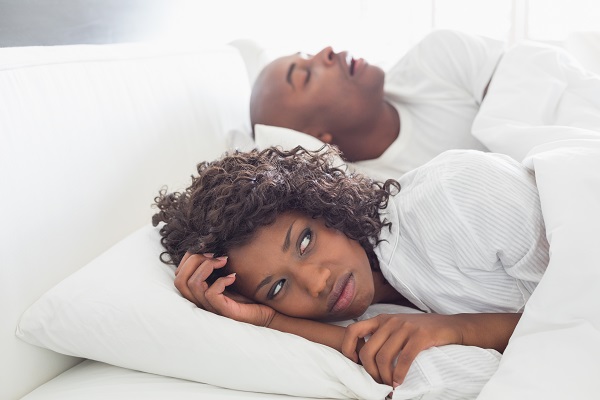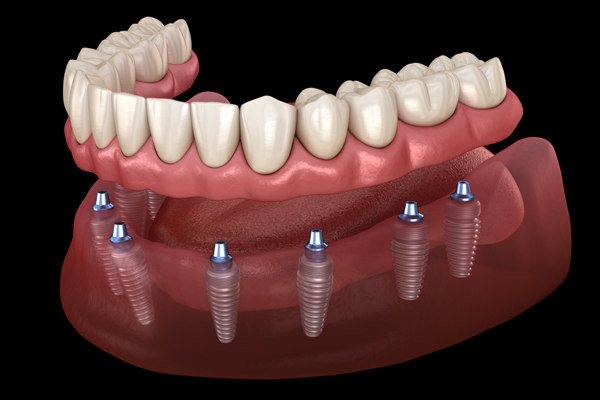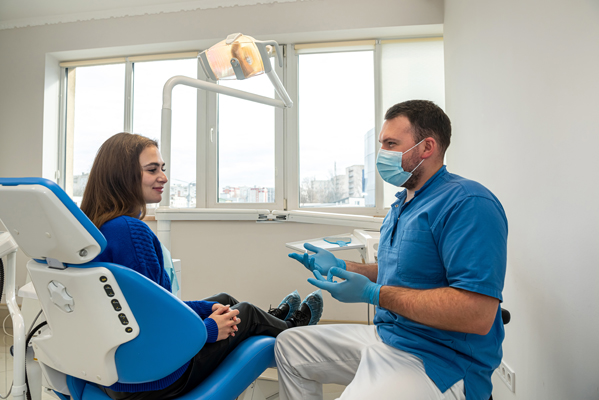How Is Sleep Apnea Diagnosed?

A dentist can detect early signs of sleep apnea, such as signs of teeth grinding. If you have visited the dentist and you suspect that you might have sleep apnea, then you might be wondering how it is diagnosed. A sleep study is usually how this condition is diagnosed. You might have a sleep study at a lab or with a home kit.
Oral signs of sleep apnea
Many patients with sleep apnea grind their teeth during the night. This can cause wear on the molars, as well as damage in the area. Sometimes, sleep apnea is caused by the jaw being too small or the tongue being too large. The dentist can see how well the bite meets. The dentist will also look for a tongue that is scalloped around the edge. This might mean that the tongue is too large compared to the size of the mouth.
Diagnosis of sleep apnea
Sleep apnea can only be diagnosed through a sleep study by a sleep physician. A patient will either visit a sleep lab overnight or take a home study. A sleep study will examine brain waves, movements of the chin and eyes, heart rate, respiration and oxygen levels in the patient’s blood. These devices are not painful, and most patients can sleep while having the sensors attached. Usually, the room where the sleep study is conducted is more like a hotel room than a hospital.
Sometimes, patients might receive split-night studies. In this study, the first half of the night is designed to diagnose the condition. If the patient does have sleep apnea, then the patient will receive a continuous positive airway pressure (CPAP) machine for the rest of the night. This will allow the lab to determine how well the patient will respond to this therapy.
A sleep study in a lab is considered the ideal way to diagnose sleep apnea. However, sometimes, a sleep doctor will determine that a patient can be diagnosed using a home study. Home studies are becoming used more often. This can be beneficial for patients who are uncomfortable in a sleep lab.
The results will help the sleep lab determine how severe a patient’s sleep apnea is. If the sleep apnea is very severe, then the patient will need more pressure in the airway to keep it open. In this case, a patient may receive a CPAP machine as well as an oral appliance to work together. On the other hand, a patient with only mild or moderate sleep apnea may have the option to receive only an oral device.
Choose an oral appliance for sleep apnea
A dentist can help you by finding early potential symptoms of sleep apnea. You can also get fitted for an oral appliance at a dentist’s office. There are many benefits to choosing an oral appliance to treat obstructive sleep apnea. One of these benefits includes the portability of a small oral appliance compared to a larger CPAP machine.
Request an appointment here: https://sexton-dental.com or call Sexton Dental at (740) 363-2080 for an appointment in our Delaware office.
Check out what others are saying about our services on Yelp: Read our Yelp reviews.
Recent Posts
For patients missing most or all of their teeth, implant-supported dentures provide a stable, natural-looking way to restore a full smile. This approach anchors a custom denture to dental implants placed in the jawbone for improved support. Within this category, patients often choose between fixed and removable designs. Understanding how each option works helps patients…
Dental bonding is a simple and effective way to make immediate improvements to the smile by covering stains or fixing small chips, cracks, and gaps in the teeth, providing immediate improvement. The process is painless and quick and does not require major changes to the natural teeth. Those looking for an easy and affordable way…
Dental implants can potentially survive a lifetime of use; however, the implant crowns used for chewing and biting are vulnerable to the same factors that can damage natural teeth. Therefore, it is important to take proper precautions to extend the crown's lifespan.The following are tips to add more years to an implant crown and reduce…
General dentists provide essential care to support oral health at every age, including well into adulthood and throughout the golden years. The goal is to help keep the smile in good shape so that it stays healthy, comfortable, and functional. Dental professionals can also address age-related oral health concerns, keeping you on track for a…


